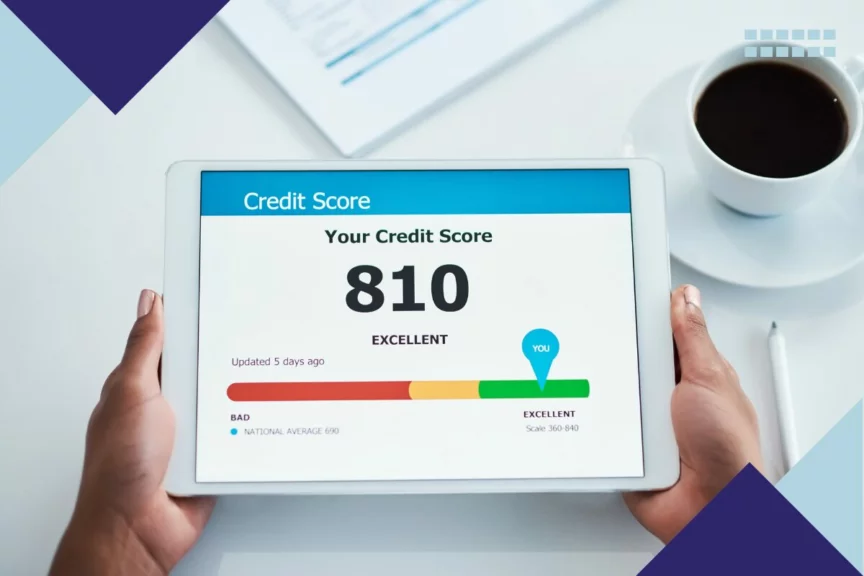19 tips to improve your credit score for better financial opportunities
Improving your credit score opens doors to better loans, lower interest rates, and other financial benefits. Explore 19 tips to strengthen your credit profile.

Improve your credit score, and you’ll see significant benefits in your financial life.
For many in the USA, a higher credit score opens doors to new opportunities, whether through credit cards, loan installments, mortgages, or other forms of financial support.
Your credit score is a key indicator of financial health, showing lenders how reliable you are in repaying debts.
A strong score not only improves your chances of securing new credit but also helps you access it with lower interest rates and better terms.
If you’re starting without a credit history or have seen your score drop, don’t worry. There are still several ways to improve your credit score.
Keep reading for quick, effective tips on how to boost it.
Why does a good credit score matter?
A credit score decides whether you are eligible for new credit.
A healthy credit score represents your responsibility and lets lenders know that you are good at repaying your debts, so you are a good candidate for new credit.
A bad credit score makes you a higher-risk candidate, meaning fewer banks competing for business, more restrictions, and fewer facilities.
What is it that you can get from a good credit score? An easily approved loan at better terms and conditions and lower interest rates.
A good or excellent credit score such as a credit score of about 815 counts as excellent, it makes you a lower-risk candidate.
This is how hundreds of Americans are getting thousands of dollars and better rates at auto insurance, mortgage, loans everything.
How to build good credit?
If you don’t have a credit history, and you need to start from scratch, here’s how you can build a good credit history in the USA:
- Open a credit account: Open a credit account and apply for a credit card if you don’t have any. You can also go for a retail credit card or student credit.
- Low credit utilization: Keep your credit utilization as low as possible. It is recommended to keep it below 30% of the available limit.
- Becoming an authorized user: If you don’t have a credit card, then becoming an authorized user of the credit card of someone you trust can be beneficial for you if he/she has a good credit history.
- Using credit mix: Use different credit types such as loan installments, credit cards, etc.
- Tracking annual credit report: Make sure to keep track of your annual credit report through the Annual Credit Report.
- Limited new applications: Don’t submit too many new credit applications, it badly impacts your credit score.
- Pay balance regularly: Try paying your balances monthly, otherwise, it keeps adding up, or keep the debt low and payable.
- Emergency fund: Build an emergency fund, as it can save you from relying on credit in emergencies.
Why should I improve my credit score?
Improving your credit score can have a significant impact on your financial life. It can help you achieve your goals through better opportunities.
If you build and maintain a good credit score, then you increase your chances of getting your loan approved on better terms and conditions. And are even more likely to approve your mortgage, car loan, etc., as well as lower premiums if you buy a car or home insurance.
Improving your credit score is also beneficial for renting a house or an apartment because the landlord often checks the credit history of the tenant.
With a healthy credit score, you are a good candidate for a premium credit card with rewards and increased credit limits.
It also gives you peace of mind about your financial status because you can get quick funds with minimum restrictions in case of emergency.
How can improving my credit score benefit me?
Americans can now enjoy a better lifestyle and enhanced living benefits with multiple financial opportunities and long-term savings.
Improving your credit score could benefit you in several ways:
- Lower interest rates easier loan approval
- Better housing options
- Long-term financial security
- Better employment chances
- Savings on utility deposits
- Lower insurance premiums
- Emergency quick loan flexibility
If you improve your credit score, then you will be able to achieve all these benefits and maybe more.
19 tips to improve your credit score
You can always improve your credit score. If you don’t have a credit history, or you have hurt your credit score due to some missteps, it’s okay.
You can improve your credit score in time, by keeping up a good credit history. Here are 19 effective tips to improve your credit score efficiently:
- Timely bill payment: Make sure to pay all your bills on time, even the utility ones. It represents how responsible you are for your bill payments.
- Low credit card balance: Keep your debt low. Like if you have a limit of $1000 then only use less than 30% of that limit, which means your balance should be $300 or less. It makes repayment easy and keeps debt low.
- Annual credit report monitoring: Keep track of your annual credit report.
- Challenge credit report errors: Check if there are any errors in your annual credit report, and challenge them if there are any.
- Keep your old accounts open: Don’t close your old accounts even if you don’t use them. It helps build a lengthy credit history.
- Avoid multiple new applications: Too many new credit applications could risk your credibility and credit score as well.
- Pay twice a month: Paying twice a month can be an effective way to keep credit utilization low.
- Request to increase credit limit: Increased credit limit means lower credit utilization but make sure that you don’t increase your spending.
- Use your credit carefully: Make sure to pay the balance every month so that it doesn’t stack up.
- Become an authorized user: Becoming an authorized user on someone else’s card could let you take benefit of their good credit history.
- Set reminders: Set msg or email alerts to remind the timely bill payments.
- Debt-to-income management: Lenders see your financial profile more favorably if your debt-to-income ratio is lower.
- Debt payoff: Prioritize paying off balances on cards that have a high interest rate or are maxed out.
- Use credit mix: To improve your score, diversify your credit sources, such as credit cards, mortgages, and vehicle loans.
- Look out for identity theft: Secure your details so no one could harm you by stealing your identity.
- Build an emergency fund: Building an emergency fund can save you from seeking emergency loans.
- Limit hard credit checks: Be careful with your loan applications to avoid harming your credit score.
- Create a budget: Making a budget to live in the USA can ensure timely payments and over-spending of credit cards.
- Make use of Experian Boost: You can raise your credit score by adding recurring payments, such as utility and phone bills, to your credit history using Experian Boost in the USA.
In the end, we conclude that it is really important to improve your credit score in the USA if you want new opportunities to achieve your goals and improve your financial life with credit support.
Improving your credit score can be a little tough and time-consuming, but it’s worth it. So be a responsible USA citizen and take steps to improve your credit score.




